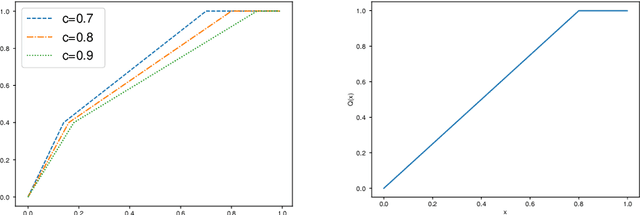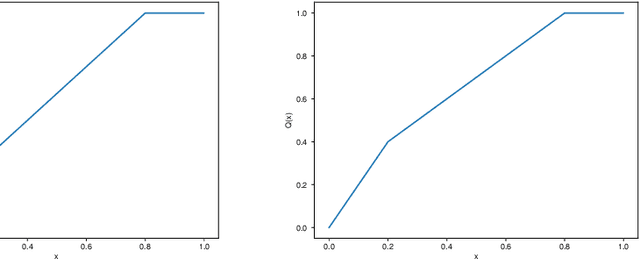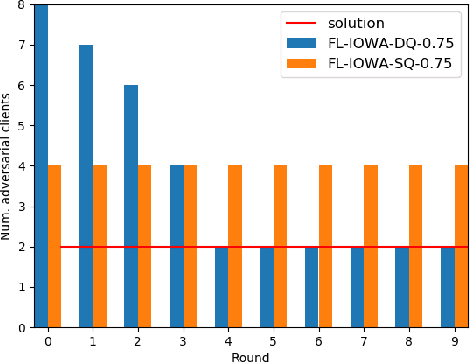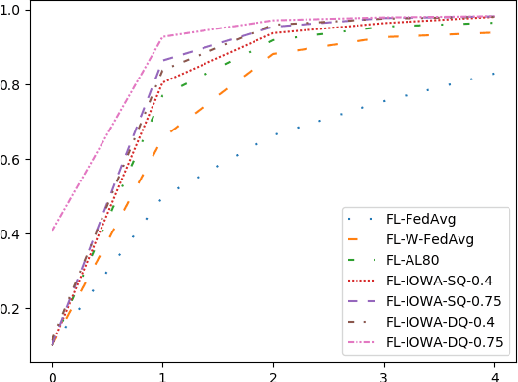Miguel Ángel Veganzones
Dynamic Federated Learning Model for Identifying Adversarial Clients
Jul 29, 2020



Abstract:Federated learning, as a distributed learning that conducts the training on the local devices without accessing to the training data, is vulnerable to dirty-label data poisoning adversarial attacks. We claim that the federated learning model has to avoid those kind of adversarial attacks through filtering out the clients that manipulate the local data. We propose a dynamic federated learning model that dynamically discards those adversarial clients, which allows to prevent the corruption of the global learning model. We evaluate the dynamic discarding of adversarial clients deploying a deep learning classification model in a federated learning setting, and using the EMNIST Digits and Fashion MNIST image classification datasets. Likewise, we analyse the capacity of detecting clients with poor data distribution and reducing the number of rounds of learning by selecting the clients to aggregate. The results show that the dynamic selection of the clients to aggregate enhances the performance of the global learning model, discards the adversarial and poor clients and reduces the rounds of learning.
Federated Learning and Differential Privacy: Software tools analysis, the Sherpa.ai FL framework and methodological guidelines for preserving data privacy
Jul 02, 2020Abstract:The high demand of artificial intelligence services at the edges that also preserve data privacy has pushed the research on novel machine learning paradigms that fit those requirements. Federated learning has the ambition to protect data privacy through distributed learning methods that keep the data in their data silos. Likewise, differential privacy attains to improve the protection of data privacy by measuring the privacy loss in the communication among the elements of federated learning. The prospective matching of federated learning and differential privacy to the challenges of data privacy protection has caused the release of several software tools that support their functionalities, but they lack of the needed unified vision for those techniques, and a methodological workflow that support their use. Hence, we present the Sherpa.ai Federated Learning framework that is built upon an holistic view of federated learning and differential privacy. It results from the study of how to adapt the machine learning paradigm to federated learning, and the definition of methodological guidelines for developing artificial intelligence services based on federated learning and differential privacy. We show how to follow the methodological guidelines with the Sherpa.ai Federated Learning framework by means of a classification and a regression use cases.
 Add to Chrome
Add to Chrome Add to Firefox
Add to Firefox Add to Edge
Add to Edge